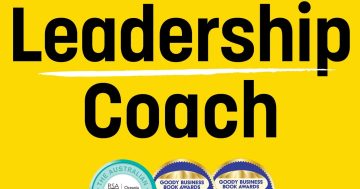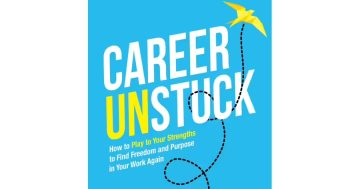Ivy Exec* gives four tips on how people can choose the best career coach for themselves.
 A career coach can make a significant difference to the overall potential of your professional career.
A career coach can make a significant difference to the overall potential of your professional career.
In a way, you are able to ‘hack’ their expertise and provide yourself with an advantage earlier in your career.
It can also be incredibly insightful to have a reliable outside perspective to help you see the long-term trajectory of the career choices you are making now.
Self-reflection is key, but it can be hard to have an unbiased perspective when you are analysing yourself and how you fit into a wider industry.
Career coaches can be a huge asset to help accelerate your career growth, but not every career coach is the right fit for every professional.
It’s important that your career coach is strongly aligned with where you want to take your career and that they have the relevant experience and industry knowledge to help you advance.
Furthermore, it’s important that there is a strong interpersonal connection between a professional and their career coach in order to fully maximise the collaboration that’s truly required for a successful mentorship.
Andjela Milenkovic, one of Ivy Exec’s top Career Advisors, has expert advice to share on this topic and this article will share some of the most important questions to ask and some useful tips to help ensure that you can find the best possible match if you are considering a career coach.
Determine a fit on a personal level
“You will probably be establishing a long-term, in-depth relationship with your career coach, so connecting with your coach on a personal level will have a strong influence on the quality of your collaboration and productivity of your work together,” Milenkovic says.
You will be spending a lot of time with your career coach and you want to ensure that there is a strong personal relationship before anything else.
“Ask if you can have a quick intro call before you commit to anything,” Milenkovic recommends. This will provide an opportunity to ask questions and feel out what working with that career coach might be like.
Here are a few tips that Milenkovic recommends:
- Be honest about where you are struggling and see how they respond
- Ask them about more personal topics to find common values
- Discuss a controversial industry topic to see which way they might lean in their own biases
Determine a fit on a professional level
Beyond a positive interpersonal relationship, it’s also critical to find a career coach who is aligned with your professional goals and is fully equipped to help you develop against challenges in your career.
“Coaching can be vague to some people, so coming prepared with specific questions and having a clear goal in mind will increase the chance of finding the perfect match for your needs,” Milenkovic says.
You need to be completely confident that your career coach will be able to lead you through the next stages of your career so that you can rely on their advice and trust their recommendations when they diverge from your own instincts.
“Ask about the specifics: what is their area of expertise? How do they time their sessions? What are the intervals in between sessions? What are the deliverables?” Melnkovic suggests.
Stay conscious of what you need to grow in your career and seek to find that in your career coach.
The best way to do this is to be clear about the biggest challenges that you face such as:
- How to network effectively
- How to establish your personal brand (offline or online)
- How to deal with ageism or other biases
- How to get ready for an interview or presentation
- How to deal with daily stressors, internal blockers, or anxiety
Ask your potential career coach about your challenges and seek to find a sense of confidence that they can help you overcome these.
Determine a fit on a practical level
Beyond a strong personal and professional connection with a potential career coach, it’s also important to make sure that there is a strong practical fit between both of you.
Accommodating schedules, different work styles, and effective communication are all key to a successful working relationship with a career coach.
If you are considering a career coach, then you should make sure to verify that it will be easy to work with them and that it won’t become a ‘chore’ or inconvenient meeting that gets delayed repeatedly.
Don’t forget that your work with a career coach needs to be fit amongst all of the other important tasks required to advance your career, so take the time before committing to a relationship to determine a strong practical fit.
Here are a few questions to keep in mind:
- What is their most successful type of client?
- How do they structure sessions?
- What is their coaching philosophy?
- What type of schedules can they accommodate?
- What types of resources do they need or provide?
Be open-minded to new career advice
No matter what, it’s important for you to cultivate an open-mind towards career advice that might conflict with your instincts.
You will need to be receptive to feedback and criticisms if you are to fully embrace the advice from a career coach and implement it in your future decisions.
Once you are comfortable and confident with a career coach, learn to trust their advice and rely on their insights to guide you forward.
*Ivy Exec is a resource for professionals seeking career advancement.
This article first appeared at ivyexec.com.











